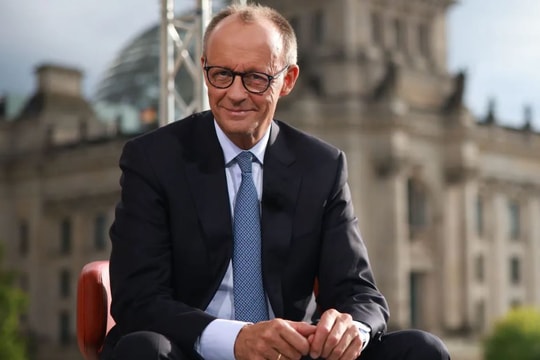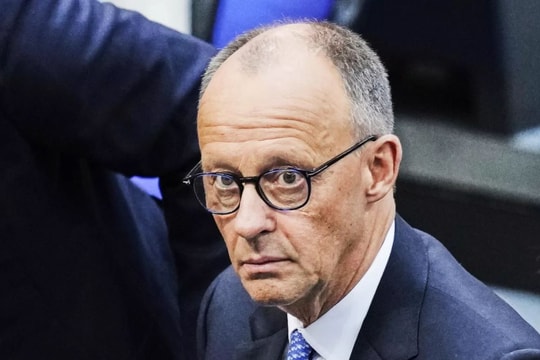International events of the past week
(Baonghean.vn) - The meeting between Japanese Prime Minister Shinzo Abe and newly elected US President Donald Trump; A strong earthquake shook New Zealand; Russia withdrew from the International Criminal Court; Thousands of dead fish covered the surface of a New York canal... are the most notable international news of the week of November 14-19.
1 - Meeting between Japanese Prime Minister Shinzo and newly elected US President Donald Trump
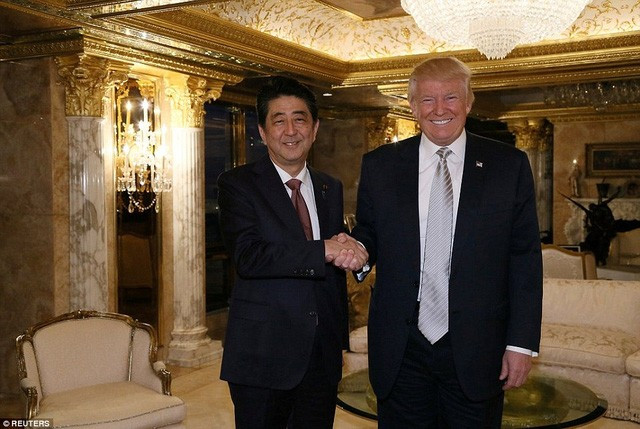 |
| Although the details of the meeting were not mentioned, analysts said that the two leaders would focus on issues of mutual concern to both countries, including the Trans-Pacific Partnership (TPP) and US-Japan security agreements. |
On November 17 (local time), incumbent Japanese Prime Minister Shinzo Abe had a 90-minute meeting with US President-elect Donald Trump at Trump Tower, Manhattan, New York.
After the meeting, Mr. Abe told reporters: “The conversation made me feel confident that we can build a relationship based on trust.” However, he did not elaborate on the issues in this meeting.
In addition, answering reporters after the meeting, Prime Minister Abe expressed his opinion that he believes that Mr. Donald Trump is a "trustworthy leader".
The informal meeting between the two men came after Tokyo grew concerned about the future of the two allies amid Donald Trump's election campaign rhetoric.
Earlier on November 17, a member of billionaire Donald Trump's election campaign, Kellyanne Conway, said in an interview with CBS: "Any deeper meetings on foreign policy and the US-Japan relationship will have to wait until after the inauguration (ie after January 20, 2017)."
2 - Russia withdraws from the International Criminal Court
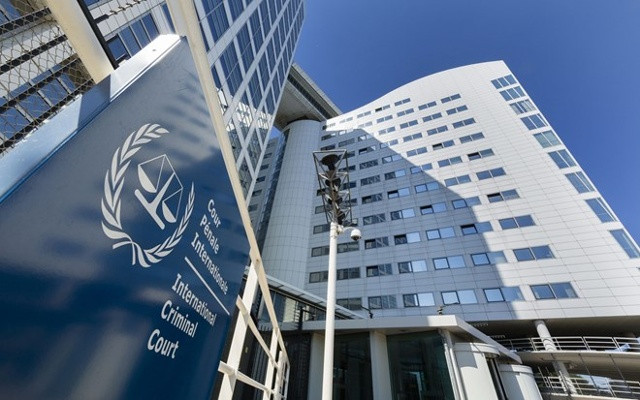 |
| The headquarters of the International Criminal Court (ICC) in The Hague, Netherlands. Photo: AP |
Putin's spokesman Dmitry Peskov explained that the withdrawal was in the "national interest" and argued that since Russia had never ratified the treaty, today's decree was a mere formality. Peskov also rejected the ICC's accusation that "there is an armed conflict" in Crimea, stressing that Crimea joined Russia after a legitimate vote in 2014.
The Russian Foreign Ministry said in a statement that Russia wanted everyone involved in international crimes to face justice but expressed disappointment with the court's work in recent years.
"The court has failed to function as expected and has failed to become a truly independent and respected mechanism of international justice," the ministry said.
Putin's decree came a day after the UN General Assembly's human rights committee adopted a resolution condemning Russia's "temporary occupation of Crimea" and accusing Russia of human rights violations such as discrimination against some residents of Crimea.
3 - Earthquakes occur continuously in New Zealand
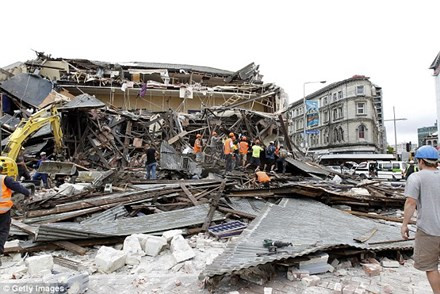 |
| A strong earthquake killed two people in New Zealand last weekend. |
A series of powerful earthquakes rocked New Zealand's South Island on November 14, triggering a tsunami and hundreds of aftershocks across the country that killed at least two people.
According to the US Geological Survey (USGS), a 7.8-magnitude earthquake occurred after midnight on November 14 (local time) near the town of Kaikoura, about 93 km northeast of Christchurch.
The quake triggered waves of about 2.49 meters high, the highest in New Zealand in at least 38 years. The tsunami warning was later lifted, but several more earthquakes were recorded at noon on November 14. At 1:30 p.m. (local time), a 6.2-magnitude earthquake struck about 39 kilometers southwest of Kaikoura.
According to New Zealand seismic monitoring agency GeoNet, about 10 hours after the first strong earthquake, nearly 300 aftershocks were recorded, one of which measured up to 6.1 on the Richter scale.
Tens of thousands of people have been told to leave New Zealand's coastal areas and move to higher ground. New Zealand authorities are scrambling to recover after an earthquake triggered landslides in some areas.
However, strong aftershocks have hampered rescue efforts. Dozens of volunteers are trying to reach the affected area. A state of emergency has also been declared in the town of Kaikoura, home to about 2,000 people.
4 - Japan patched a 15 meter deep sinkhole in just 2 days
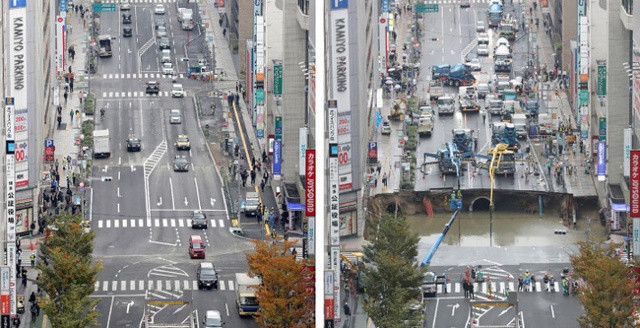 |
| It took only 2 days for local authorities to repair the road and 4 days to check its safety before putting it into operation. |
In a surprising effort, Japanese construction contractors patched a 30m wide, 15m deep sinkhole that appeared on a street in just 2 days.
A sinkhole measuring 30 meters wide, 27 meters long and 15 meters deep suddenly appeared on a road in Fukuoka City, southwestern Japan on November 8. The sinkhole appeared due to the impact of the expansion of a nearby subway line. The sinkhole is so deep and wide that it could swallow surrounding houses at any time, while also affecting traffic on this normally busy road.
Local officials immediately apologized to residents for the disruption, and construction crews worked against the clock to patch the road in just two days, despite the fact that the sinkhole was located right in the water main. They used 6,200 cubic meters of sand and cement to fill the hole, not to mention the work of resurfacing the road and reinstalling gas and electricity lines.
Soichiro Takashima, mayor of Fukuoka, said that the new road is now 30 times stronger than the old one.
This achievement of the Japanese engineers and workers has received praise from the online community.
5 - South Korean National Assembly passes law on special prosecutor to investigate corruption scandal
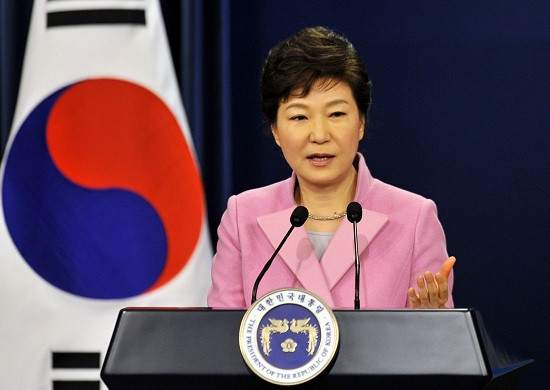 |
| South Korean President prepares to be questioned. |
The South Korean National Assembly on November 17 unanimously passed a law to appoint a special prosecutor to investigate the corruption scandal involving President Park Geun-hye. This new development is said to increase political pressure pushing the head of the Blue House closer to the risk of having to resign.
The bill was passed after a vote initiated by the main opposition Democratic Party of Korea, with 196 out of 300 votes in favor, representing 196 lawmakers in the National Assembly, indicating that some members of Ms Park's ruling Saenuri Party supported the bill.
The special prosecutor will have up to 120 days to investigate the corruption scandal and possibly bring charges, media reports said. In a notable development, President Park's lawyer, Yoo Yeong-ha, said he would cooperate with prosecutors to arrange a face-to-face interview with Ms. Park next week.
6 - Horrific petrol truck explosion in Mozambique, 173 casualties
| Among the victims were children. |
On November 17, at least 73 people were killed and more than 100 others were injured when a petrol tanker overturned and suddenly exploded near the village of Caphiridzange, Tete province, Mozambique.
In a statement, the Mozambican government said the fuel tanker overturned while traveling from the port city of Beira to Malawi. After overturning, it exploded as a large crowd of people gathered to collect fuel from the vehicle.
Mozambique authorities have opened an investigation into whether the owner of the vehicle sold the petrol after it overturned or whether people had taken advantage of the situation.
According to a local source, the tanker truck overturned on Wednesday and exploded on Thursday afternoon. The initial cause of the explosion was believed to be high temperature.
“Ambulances and medical personnel were dispatched to the scene to assist the victims. The injured were taken to Tete Hospital for treatment,” the government statement said.
According to the International Monetary Fund (IMF), Mozambique is one of the poorest countries in the world. Although the country's civil war ended in 1992, the economy remains in deep recession.
7 - German ChancellorAngela Merkelwill run for a fourth term
| German Chancellor Angela Merkel. |
German Chancellor Angela Merkel will run for a fourth term in the 2017 election. This was confirmed by Mr. Norbert Roettgen, a senior politician of the German Christian Democratic Party on November 15.
“Mrs Merkel is determined and ready to contribute to strengthening the international liberal order. She will run for office and will be a responsible leader.”
For months, German public opinion has been waiting to see whether Ms. Merkel will pursue a fourth term, after her approval rating fell due to issues related to immigration policy.
CNN news agency quoted a number of political experts as saying that if Ms. Merkel runs, she will likely win and continue to hold the position of Chancellor, despite her declining approval rating.
Ms. Merkel's bid for a fourth term is seen as an effort to maintain stability in Europe's largest economy, amid the turmoil caused by Britain's referendum to leave the EU, Donald Trump's election as US President, and the populist movement spreading across the old continent.
Over the past two years, Ms Merkel's open policy of accepting hundreds of thousands of immigrants from Syria, Afghanistan and other countries into Europe has faced criticism due to security concerns.
However, her supporters say that Ms. Merkel is a decisive politician with a kind heart, who has contributed a lot to the economic and social development of Germany and has made great contributions in solving the European debt crisis.
8 - Russian economy minister arrested on suspicion of bribery
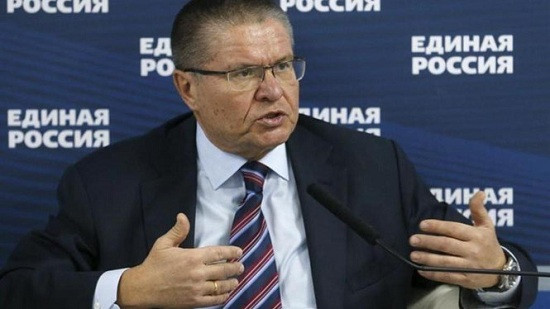 |
| Russian Economy Minister Alexei Ulyukayev. |
Alexei Ulyukayev, Russia's economy minister, has been detained in connection with the alleged bribery of $2 million in exchange for "positive" reviews that helped Rosneft oil company successfully buy a 50% state stake in Bashneft, Russia's Investigative Committee said in a statement on November 15.
Mr Ulyukayev is also the highest-ranking politician in Russia to be arrested since the failed coup in the Soviet Union in 1991. The Russian Investigative Committee reported the case directly to President Vladimir Putin, stressing that investigations would soon be launched to clarify the allegations.
Kremlin spokesman Dmitry Peskov said the charges against Ulyukayev were very serious. “In any case, only a court can decide on anything,” Peskov said.
Peace
(Synthetic)
| RELATED NEWS |
|---|



